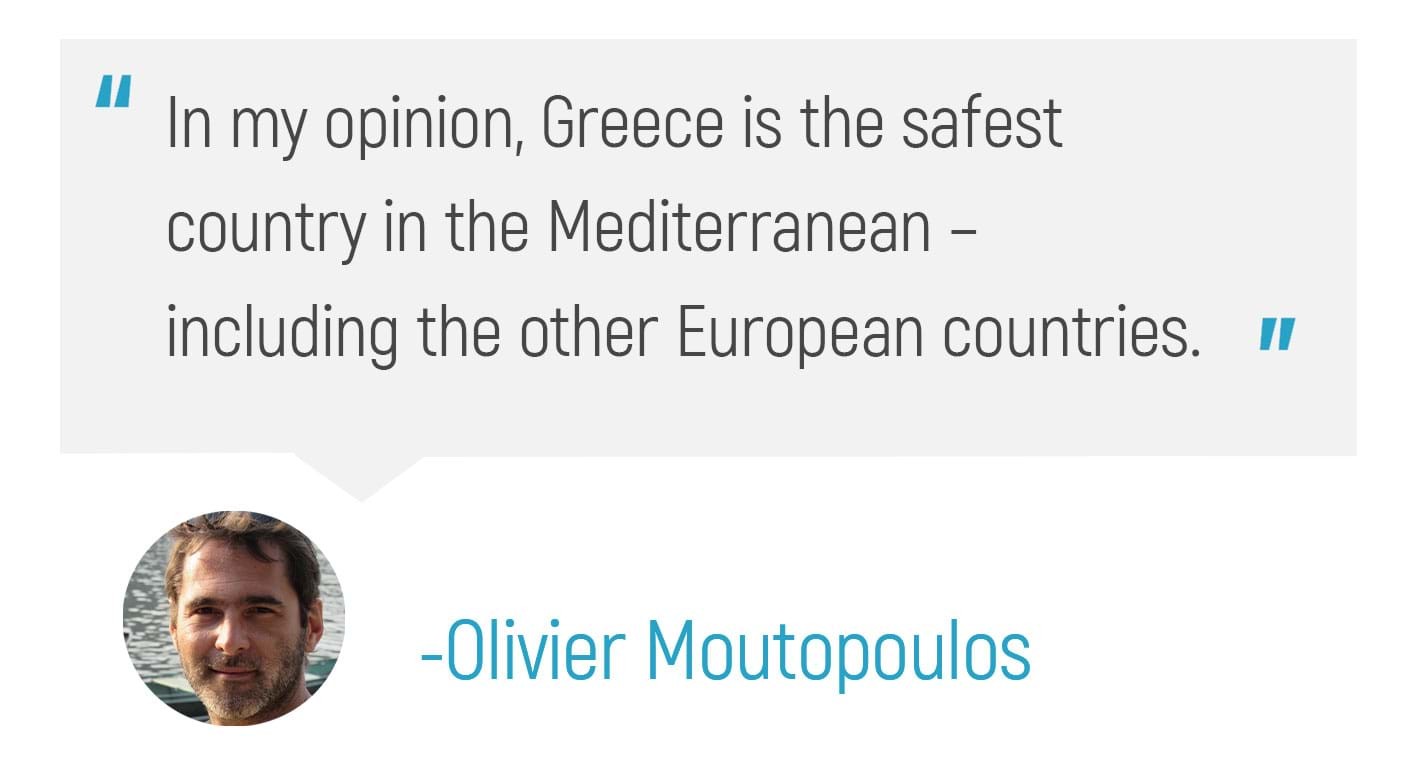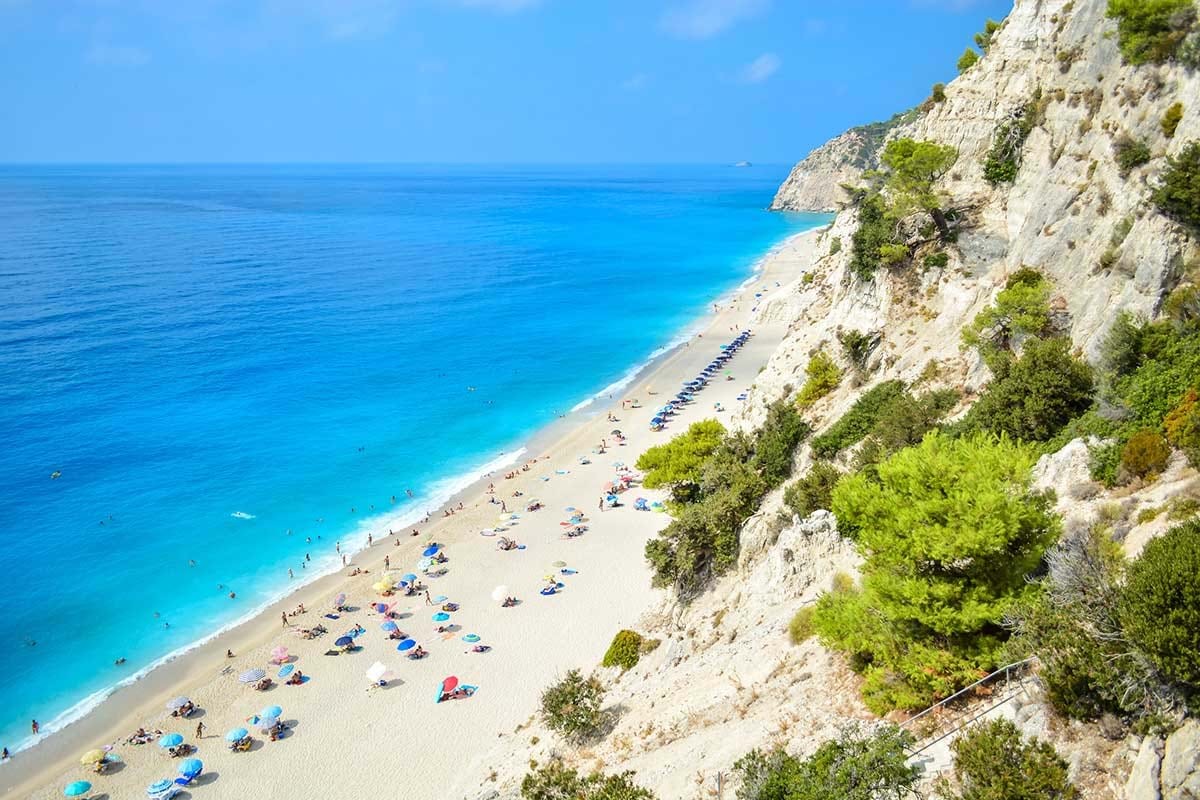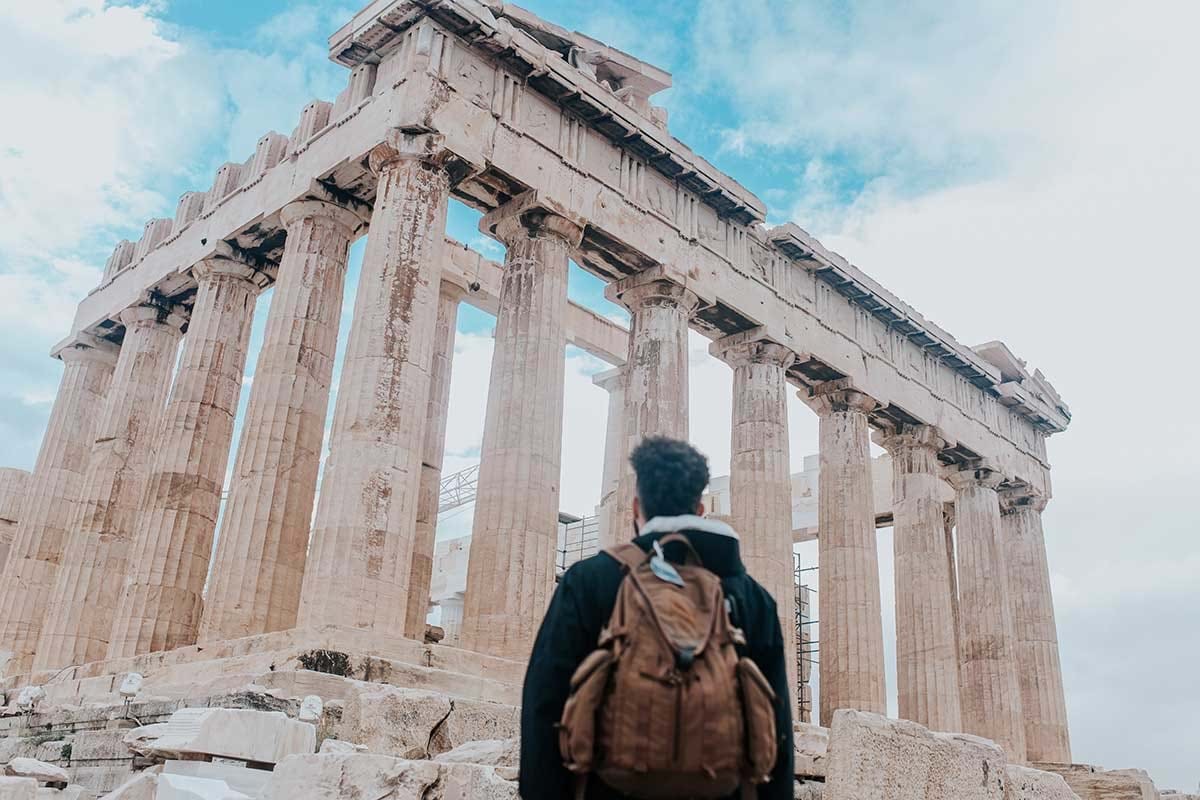With global uncertainties, evaluating the safety of travel destinations is crucial, especially in Europe. When travelers inquire, “Is It Dangerous To Travel To Greece?”, the reassuring answer is generally “no.”
“In my opinion, Greece is the safest country in the Mediterranean – including the other European countries of the region,” states Olivier Moutopoulos from Greeka, a tour operator specializing in Greek travel. “It is a fact that there has never been a terrorist attack from Al-Qaeda or ISIS in Greece.”
 Quote from Greeka saying Greece is the safest Mediterranean country.
Quote from Greeka saying Greece is the safest Mediterranean country.
Experts Agree Greece Is Generally Safe
Unlike many European nations, Greece holds a level-one destination advisory from the U.S. State Department, indicating that travelers should “exercise normal precautions.” This suggests a baseline level of safety comparable to many Western countries.
The annual Global Peace Index consistently ranks Greece favorably regarding safety, conflict levels, and militarization. The index highlights Greece’s low rates of homicide, incarceration, violent crime, and political instability.
Collectively, these factors paint a picture of Greece as a generally idyllic and safe vacation destination.
“If you are visiting the Greek islands, you really do not have to worry about anything,” Moutopoulos advises. “You will feel safe and at ease. If you are visiting Athens or another big city, I would just recommend the general safety tips that someone considers when traveling anywhere in Europe and the USA.”
 Scenic beach in Greece with lush cliffsides.
Scenic beach in Greece with lush cliffsides.
General Safety Tips for Travelers to Greece
Moutopoulos recommends travelers take these precautions:
- Secure personal belongings.
- Be wary of pickpockets, especially on public transportation in Athens.
- Avoid areas with a questionable reputation after dark.
Let’s examine these recommendations in more detail.
Protecting Your Belongings
Protecting your belongings in Greece starts with vigilance regarding purses and bags.
“It’s very common and recommended if you carry a backpack to place it in front of you so you can keep your eye on it,” Moutopoulos suggests.
Additional tips include:
- Opt for a crossbody bag, which is more secure than a shoulder bag.
- Be aware of potential pickpockets and bag snatchers when crossing streets. Maintain some space between yourself and others.
- If setting down a bag with a strap, avoid hanging it on the back of a chair. Instead, place it between your feet and step on the strap.
 Tourist admiring ancient Greek ruins.
Tourist admiring ancient Greek ruins.
Avoiding Pickpockets and Scams
When discussing pickpockets, Moutopoulos observes that “pickpockets in Greece won’t get aggressive…Also in Greece there is a sense of caring for each other. In case of a misfortune like this, don’t be surprised if a complete stranger will be willing to help you.” While this inherent sense of community helps, it’s still best to be prepared.
Specific strategies to deter pickpockets include:
- Distributing money, credit cards, travel documents, and passports across multiple bags, including your daily sightseeing bag.
- Consider using a valuables pouch or money belt for added security, particularly if you’re concerned about theft.
To avoid common travel scams, remember to:
- Verify the authenticity of purchases.
- Double-check your change.
- Negotiate prices in advance.
The U.S. State Department offers further information on avoiding scams here.
 Greek city illuminated at night.
Greek city illuminated at night.
Avoiding Potentially Dangerous Areas at Night
Like most countries, Greece has a different atmosphere at night. While walking around at night is generally safe, it’s wise to consult local sources such as your hotel concierge for information on any specific safety concerns or areas to avoid.
“In general, Athens and other large Greek cities are as safe as any other European city,” Moutopoulos says, while noting particular areas to be mindful of.
“Exarcheia has a reputation of [being] a dangerous district,” he explains. “It is the home of a more bohemian lifestyle, and it is absolutely okay if you decide to skip this, but in my opinion you would have missed an important part of the Athenian identity.”
When venturing into such areas:
- Avoid traveling alone.
- Utilize a safety app like Noonlight or bSafe for added security.
- Refrain from using ATMs at night. Withdraw cash during daylight hours.
In conclusion, while exercising standard travel precautions is always advisable, Greece is generally considered a safe and welcoming destination for tourists. By staying informed and aware of your surroundings, you can enjoy a worry-free and memorable trip to this beautiful country.
